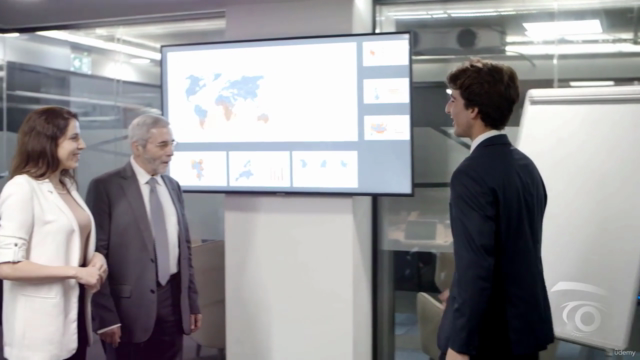Associate Professional in Human Resources International

Why take this course?
🎉 Master Global HR Fundamentals & Prepare for the HRCI aPHRi Certification!
📚 Course Overview: This course is a deep dive into the realm of global human resource management (HRM). It's meticulously crafted to provide you with the theoretical underpinnings necessary to tackle the intricacies of managing a workforce across different countries and cultures. With a blend of practical insights and rigorous academic concepts, this course will transform your understanding of international HR.
Why This Course?
- Global HR Frameworks & Strategies: Grasp the core principles that distinguish international HRM from domestic practices.
- Regulatory Navigation: Understand the maze of global employment regulations and learn how to maintain compliance across borders.
- Talent Management Excellence: Acquire the skills to effectively attract, develop, and retain global talent.
- Cross-Cultural Mastery: Learn to navigate cross-cultural dynamics to build cohesive and inclusive teams.
- Expatriate Management Proficiency: Gain expertise in managing the entire lifecycle of expatriates, from international relocations to repatriation.
- Global Compensation & Benefits Expertise: Develop strategies for equitable compensation packages that consider cultural and legal nuances.
- Strategic Workforce Planning: Explore workforce analytics, diversity initiatives, and employee relations in a global context.
- Staying Ahead of the Curve: Understand future trends to remain competitive and innovative in the field of global HR.
Course Breakdown:
-
Global HRM Frameworks & Strategies: 🌐
- Explore the differences between domestic and global HR practices.
- Learn about the key principles that define international HR.
-
Regulatory Landscape: 📜
- Navigate the complexities of international HR regulations and compliance.
- Overview of employment contracts, labor laws, and cross-border legal strategies.
-
Talent Acquisition & Management: 🚀
- Examine global talent acquisition strategies.
- Learn how to create and manage a diverse talent pipeline.
-
Cross-Cultural Communication: 🗣️
- Understand cultural differences affecting HR practices worldwide.
- Master strategies for effective communication in multicultural environments.
-
Expatriate Management: 🌍
- Cover the entire lifecycle of managing expatriates.
- Develop comprehensive management strategies for expatriates.
-
Global Compensation & Benefits: 💰
- Learn how to structure equitable compensation packages globally.
- Understand legal requirements and cultural considerations in international compensation.
-
Diversity & Inclusion, Workforce Planning: 🤝
- Explore workforce analytics and diversity initiatives.
- Implement inclusive global HR strategies effectively.
-
Future Trends in Global HR: ⏰
- Stay informed about emerging trends in international HR management.
- Prepare for the evolving challenges of managing a global workforce.
Preparing for the HRCI aPHRi Certification: 🎓 This course is meticulously designed to align with the content and competencies tested by the HRCI aPHRi certification exam. It ensures you have a comprehensive understanding of all aspects of global HR management, preparing you for success in the certification process and in your future international HR roles.
👩🎓 Who Should Take This Course?
- HR professionals aspiring to work in multinational corporations or organizations with global operations.
- Individuals interested in advancing their career by acquiring a specialized skill set in international HR.
- Those preparing for the HRCI aPHRi certification exam and seeking to enhance their knowledge of global HR practices.
📅 Enroll Now and take your first step towards becoming a global HR expert! 🌟
Join us on this journey to master global HR management and prepare for the HRCI aPHRi certification with confidence! 🌍🎓🤝
Course Gallery




Loading charts...